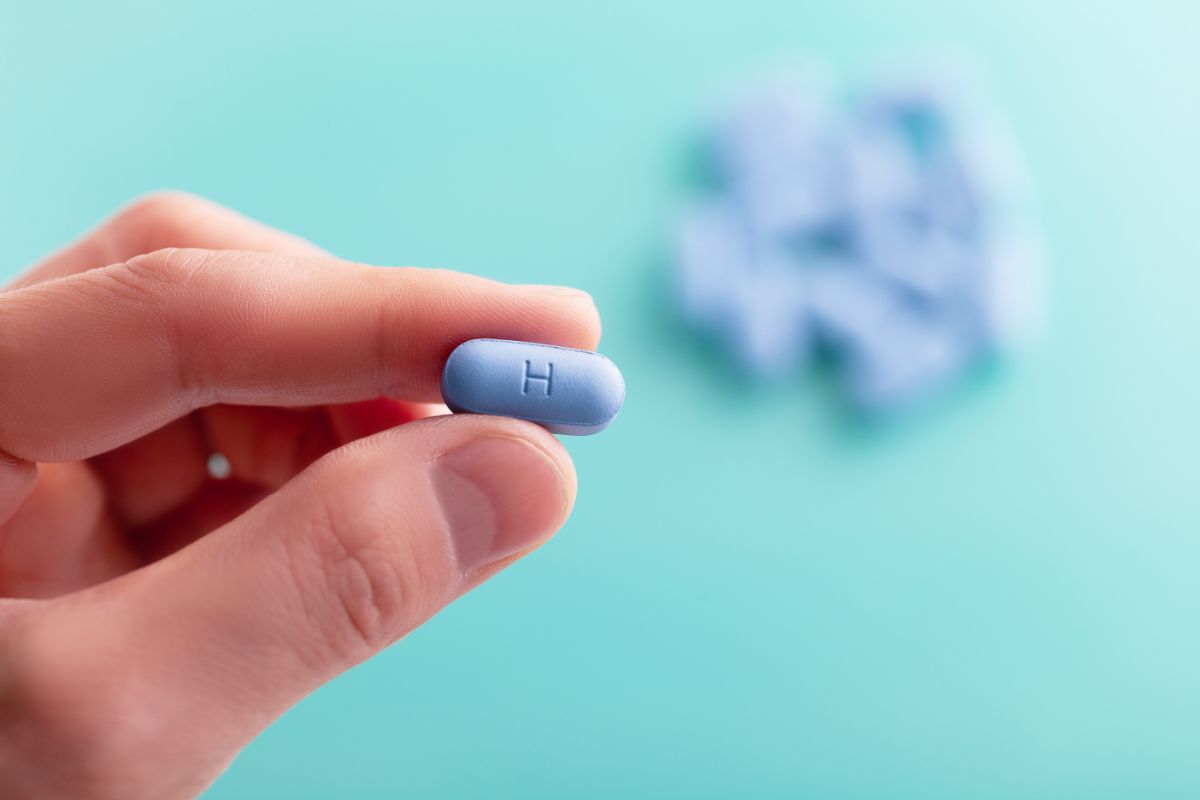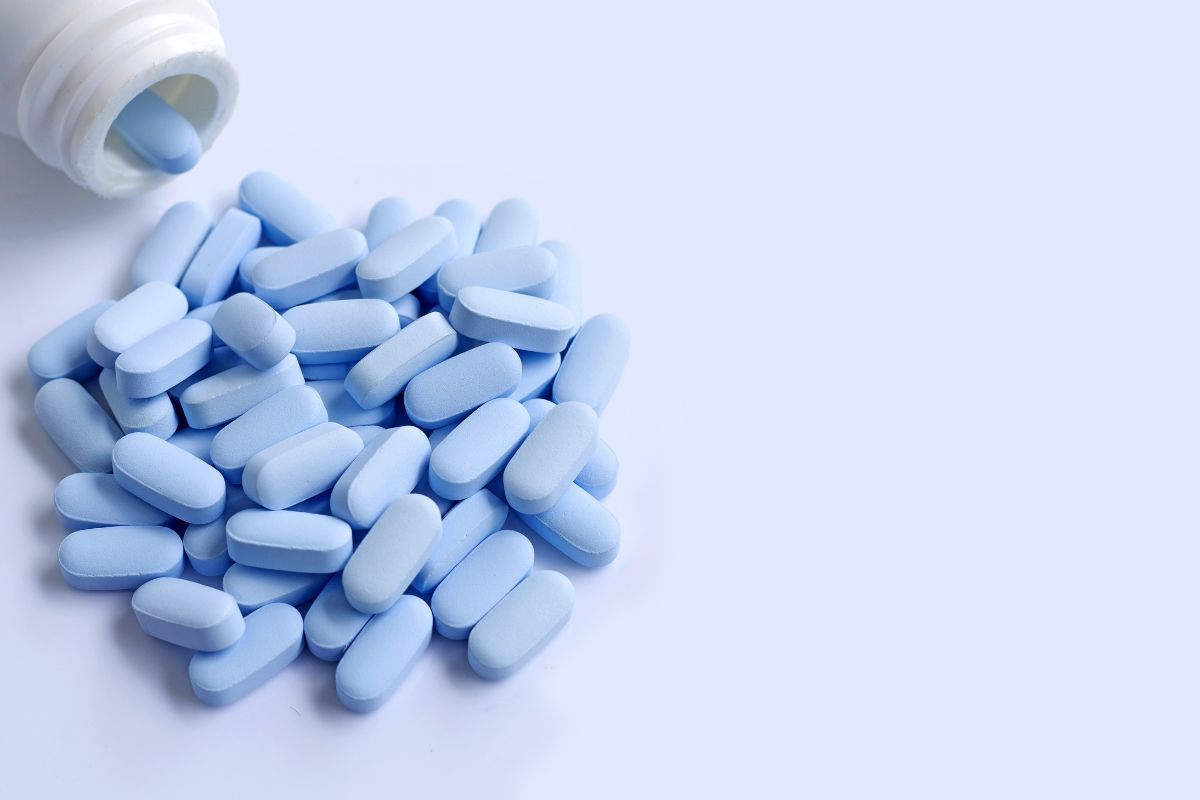HIV is a virus that impacts sufferers right across the world, and recent years have seen a major push to try and address the causes and spread of the virus, as well as come up with new innovations and treatments to help reduce the spread of HIV, with the eventual aim of stamping it out for good.
One of the latest innovations to hit the market is PrEp – or pre-exposure prophylaxis.

This involves taking medication before you are exposed to HIV in order to prevent infection if you do become infected.
The idea behind this is that by treating people who are at high risk of contracting HIV, we can stop them from becoming infected in the first place. However, does PrEP treatment affect body weight?
We took a closer look at the details behind the treatment to ensure that you have all of the information you need to make a smart, informed choice.
What Is HIV?
First off, what exactly is HIV?
The human immunodeficiency virus (or HIV) is a virus that attacks your immune system.
It enters your body through tiny tears or breaks in your skin, like when you get a cut. Once inside your body, it travels around looking for healthy cells to infect.
When it finds these, it uses its enzyme to copy itself into the cell’s DNA. From there, it makes copies of itself using the cell’s machinery and eventually destroys the cell.
In doing so, it prevents the cell from making any more proteins needed by the body.
Eventually, the immune system becomes weak and unable to fight infections effectively.
The most common way to catch HIV is via unprotected sex with an infected partner.
If you have sex without wearing condoms, you may be putting yourself at risk of getting HIV. You also run the risk of passing on other sexually transmitted diseases, such as syphilis, gonorrhea, and chlamydia.
How Do People Get Infected With HIV?
Once you have been infected with HIV, it will stay in your body for life. Without treatment, you will almost certainly die within 10 years.
But with treatment, you can live a long time with HIV – although not indefinitely.
There are two main ways that someone can contract HIV:
- Through sexual contact
- By sharing needles used to inject drugs
If you are having sex with someone who has HIV, you can still get infected even if they have no symptoms; they could pass on the virus to you during sex without knowing about it.
Similarly, if you share needles to inject illegal drugs, you can pass on HIV to others as the needle goes from your body to theirs.
How Can I Reduce The Risk Of Getting HIV?
You can protect yourself against HIV by avoiding risky behavior. For example, you should always use condoms during sex, and never share needles to inject drugs.
The recent increases in medicine have also offered a new option when it comes to preventing the contraction of HIV: PrEP. PrEP, or pre-exposure Prophylaxis, is a drug that is taken daily to keep the virus from entering your body.
It works by blocking the entry point where HIV attaches to your cells and therefore stops you from contracting the virus.
PrEP has been shown to reduce the risk of contracting HIV by 99%, but it is important to note that the medication must be taken correctly in order to be effective.
There are two main options for the drug; daily pill form, or regular injections.
Both work effectively, but have their own pros and cons; daily pills can be taken quickly and easily in the comfort of your own home – but you must remember to take your meds each day.
Injections, on the other hand, need to be taken less regularly, but you will need to travel to a clinic or medical practice to have them.

Are There Any Downsides of PrEP?
While PrEP is a great tool to prevent people from contracting HIV, there are some downsides to taking it. First off, the medication is expensive.
A single course of PrEP costs upwards of $1,000 per year. This means that those who cannot afford this cost are out of luck. Secondly, many people do not know how to take the medication properly.
Some studies show that only half of all people taking PrEP actually follow the instructions given to them.
Finally, there are side effects associated with the medication. These include headaches, nausea, diarrhea, muscle aches, and fatigue.
How Does PrEP Treatment Affect Body Weight?
One of the main side effects of PrEP can be weight loss or weight gain, and this is due to several reasons.
Firstly, the medication causes your immune system to become more active, so you may feel like you’re constantly fighting infections.
The medication can also suppress certain hormones that are responsible for regulating appetite, so you may experience cravings for sugary foods and snacks, as well as causing changes in your metabolism, meaning that you burn calories more slowly than usual.
For these reasons, it’s important to keep track of your body weight while taking PrEP and to eat healthy food when you notice yourself craving unhealthy treats.
What Are Other Ways To Protect Yourself From HIV?
While PrEP is one of the best methods available to prevent HIV infection, there are other things you can do to help protect yourself.
The first thing you can do is make sure you are using condoms every time you have sex.
Condoms provide an extra layer of protection between you and your partner, which helps to stop any potential transmission of HIV, and it is important to ensure that you are using protection even if you are also taking PrEP, as this will help reduce transmission of other STIs, as well as unwanted pregnancy.
If you are injecting drugs, it is important to clean and sterilize your equipment before and after use, and do not share needles, as this puts you at risk of passing on blood-borne viruses such as Hepatitis C as well as HIV.
Lastly, don’t forget to get tested regularly, especially if you are sexually active.
The sooner you find out whether or not you have contracted HIV, the better chance you have of getting treatment and keeping the virus under control.
Final Thoughts
When taken correctly and as prescribed, PrEP (see also ‘PrEP: Effects on Sexual Activity‘) can be a great tool in the fight against HIV and can help those who are at high risk of contracting the virus to stay healthy and safe.
- Understanding Male Reproductive Health: A Complete Guide - February 2, 2025
- Simple Healthy Skin Habits for Radiant Skin - December 6, 2024
- Unlocking the Connection Between Nutrition and Mental Health - December 3, 2024








